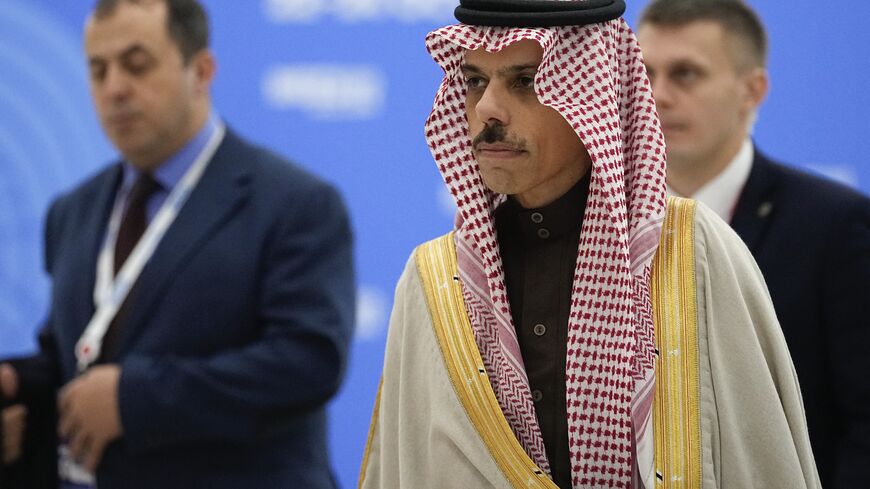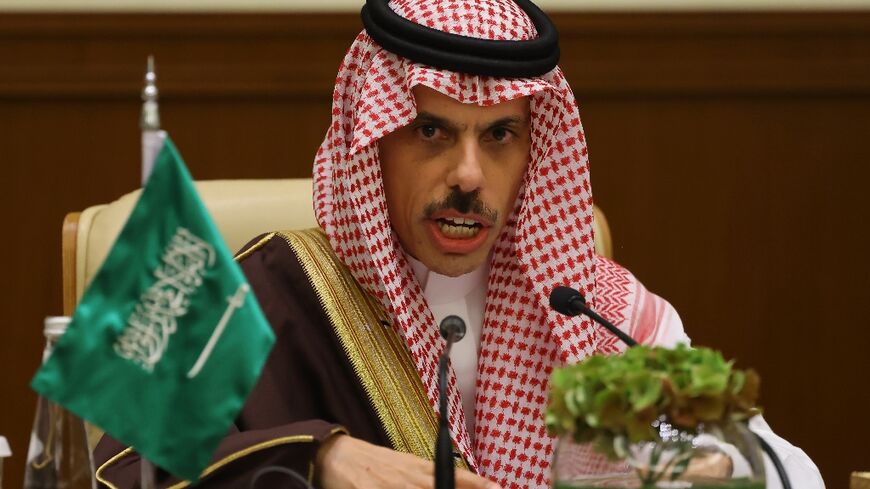MBS condemns Israel's 'genocide' in Gaza as Saudi frustrations mount
Saudi Arabia's de facto ruler has called for the establishment of a Palestinian state following phone calls with US President-elect Donald Trump and Iranian President Massoud Pezeshkian last week.

ABU DHABI — Saudi Arabia's crown prince and de facto ruler condemned Israel's offensive in Gaza as genocide and called for the establishment of a Palestinian state.
"The kingdom renews its condemnation of the genocide committed by Israel against the Palestinian people," Prince Mohammed bin Salman told the summit in his opening remarks.
He called on Israel to "immediately halt" its actions in Palestine and Lebanon at an Arab and Islamic summit being held in Riyadh.
The summit is a diplomatic gathering of countries belonging to the Arab League as well as the Organization of Islamic Co-operation.
Leaders and representatives from over 50 states belonging to both organizations attended the summit in the Saudi capital to condemn Israeli actions in Gaza and Lebanon.
"We launched a global initiative to support the two-state solution," Prince Mohammed said. He also condemned Israeli efforts to ban UNRWA, a UN agency that works for Palestinian refugees.
The crown prince's comments are emblematic of rising Saudi diplomatic frustrations over the rising death toll in Gaza, which topped 43,000 last week, according to the local health ministry.
Around 70% of the dead are women and children, the United Nations Human Rights Office said on Friday.
Israel's operation in the stricken enclave was in response to the Oct. 7 attack by Hamas that killed 1,200 civilians.
On Oct. 1, Israel launched an invasion into Lebanon targeting the weapons depots, infrastructure and leadership of Hezbollah, an influential Iran-backed paramilitary group based in the country.
The strikes have so far killed more than 3,000 people, the Lebanese Health Ministry said on Nov 5.
Saudi frustrations
Saudi Arabia, which condemned the attack on Israeli civilians last year, has invested diplomatic efforts into bringing an end to the conflict that has spilled over the wider Middle East.
Saudi Foreign Minister Prince Faisal bin Farhan held a number of bilateral meetings on the sidelines of the summit with Palestine Prime Minister Mohammad Mustafa, who is also foreign minister, as well as Lebanese Foreign Minister Abdallah Bou Habib.
The meetings focused on the "humanitarian and political challenges" in the region, particularly in Gaza and Lebanon, according to the Saudi Press Agency.
Prince Faisal said last month that normalization talks with Israel were "off the table" until rights for Palestinians were restored and a two-state solution had been reached.
No to normalization
Before Oct. 7, Saudi Arabia was said to be “inching closer” to normalizing relations with Israel, according to Prince Mohammed.
Speaking at the Future Investment Initiative in Riyadh on Oct. 31, Prince Faisal termed the Israeli offensive in Gaza a genocide.
“I would say that it is not just the issue of normalization with the kingdom that is at risk. I would say that the security of the region as a whole is at risk if we do not address the rights of the Palestinians,” he said.
Qatar's announcement on Nov. 9 that it was ending its role as a mediator between Hamas and Israel.
The Gulf state's Foreign Ministry spokesperson, Majed al-Ansari, criticized both sides for failing to reach an agreement by a deadline set for 10 days ago.
Unified messaging
Following the summit, the participating countries issued a resolution made up of 33 items, including calling for a two-state solution, reaffirming their support for the Palestinian people and condemning the violations of Lebanese, Iranian, Iraqi and Syrian sovereignty. The communique also called on the international community to implement relevant UN resolutions and International Court of Justice decisions.
Saudi Arabia's crown prince spoke over the phone with US President-elect Donald Trump the day after the election and with Iranian President Massoud Pezeshkian on Nov. 10.
Saudi Arabia has been careful to present a unified front with Arab and Islamic nations when it comes to the Palestinian cause.
Ali Shihabi, a Saudi political commentator close to the royal court, told Al-Monitor that he does not expect Riyadh's position on the Palestinian issue to change following Trump's swearing-in in January 2025.
He also did not see Riyadh taking a mediating role following Doha's exit from the cease-fire talks.
The summit is the second Saudi-led effort toward a two-state solution in recent weeks. The EU’s special representative for the Middle East peace process, Sven Koopmans, visited the Saudi capital Riyadh on Oct. 20 for an EU-led initiative to find a two-state solution to the conflict in Israel and Palestine. He said the group would meet next in Brussels toward the end of November to continue the dialogue.







